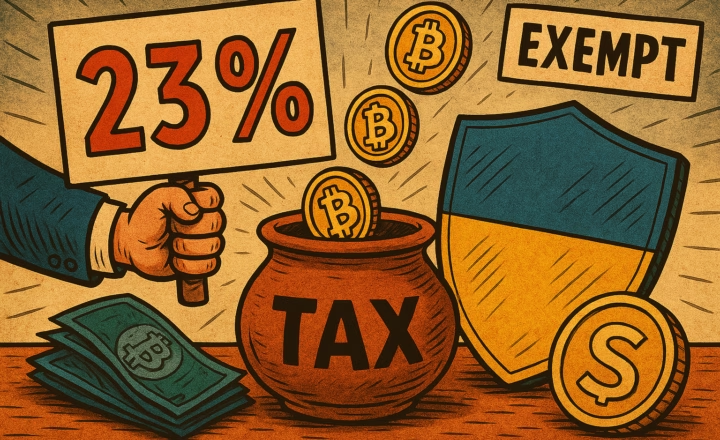Third State in a Month Backs Down
Kentucky’s Department of Financial Institutions (DFI) has become the third U.S. state regulator in recent weeks to drop legal action against Coinbase’s staking rewards program, signaling a growing trend of regulatory retreat amid shifting federal sentiment.
In a joint stipulation filed on April 1, Kentucky formally ended its case against the crypto exchange, which had originally been part of a multi-state legal push launched in June 2023. At that time, regulators from 10 U.S. states filed near-simultaneous lawsuits against Coinbase, echoing the U.S. Securities and Exchange Commission’s (SEC) broader campaign against staking programs.
Coinbase Chief Legal Officer Paul Grewal responded to the news on X, urging lawmakers to replace the current fragmented legal landscape with a clear, federal regulatory framework for digital assets.
@GovAndyBeshear’s Department of Financial Institutions has followed suit by dismissing Kentucky’s staking lawsuit against @coinbase— just as Vermont and South Carolina recently did. Congress needs to end this litigation-driven, state-by-state approach with a federal market… https://t.co/LyCy2iLS20
— paulgrewal.eth (@iampaulgrewal) March 31, 2025
“It’s time for Congress to end this litigation-driven, state-by-state approach with a federal market structure law,” Grewal wrote.
Who’s Still Suing?
Despite the recent wave of dismissals, seven state-level lawsuits remain active against Coinbase. These include:
-
Alabama
-
California
-
Illinois
-
Maryland
-
New Jersey
-
Washington
-
Wisconsin
Each of these cases alleges that Coinbase’s staking rewards program constitutes an unregistered securities offering, a legal classification that has long been contested by the crypto industry.
However, the SEC’s decision in February to drop its own lawsuit against Coinbase appears to be having a ripple effect among state regulators.
Vermont and South Carolina Moved First
Vermont was the first to exit the coordinated legal campaign, filing a withdrawal notice on March 13, citing the SEC’s reversal and suggesting that federal guidance on staking may soon evolve.
Just days later, South Carolina followed suit, dismissing its case through a joint stipulation with Coinbase on March 27.
Now with Kentucky’s exit, the state-led legal front against staking appears to be fracturing, creating momentum for a potential national solution.
A Shift in Regulatory Winds
Kentucky’s move also comes in the broader context of state-level support for crypto. On March 24, just a week before the lawsuit was dropped, Governor Andy Beshear signed the “Bitcoin Rights” bill into law.
That legislation:
-
Protects self-custody rights for crypto holders
-
Exempts crypto mining from securities and money transmission laws
-
Signals a pro-innovation stance from the state legislature
This policy alignment may have further motivated Kentucky’s regulators to deescalate their legal pressure on one of the industry’s leading players.
At the federal level, the SEC—now under acting chair Mark Uyeda—has taken a softer tone toward crypto enforcement, pausing or dropping multiple lawsuits and launching a Crypto Task Force focused on collaborative rule-making rather than litigation-first strategies.
Independent Take: A Strategic Reset, Not a Victory Lap
While Coinbase may view these legal dismissals as a form of vindication, the bigger picture is less about courtroom wins and more about regulatory realignment.
State-level retreats suggest that regulators are no longer confident staking rewards can be broadly enforced under current securities frameworks. But with seven states still active in litigation, and no definitive federal rule in place, the issue remains unresolved.
For the crypto industry, the developments highlight both the power of regulatory fragmentation—and the urgent need to resolve it. Without federal clarity, companies like Coinbase will continue to face regulatory roulette, battling inconsistent enforcement across multiple jurisdictions.
Congress now finds itself at a crossroads: codify staking regulations and provide uniform oversight, or risk leaving innovation stalled in a patchwork of courtrooms.
Conclusion
With three state lawsuits now dropped, a pattern is emerging that could signal the beginning of the end for state-level legal action against Coinbase’s staking services. But until the remaining seven lawsuits are resolved—or superseded by federal law—the uncertainty lingers.
The crypto industry will now look to Congress and the SEC’s Crypto Task Force for the next steps, hoping for a future where staking rewards are either clearly allowed or consistently regulated—not caught in legal limbo.













